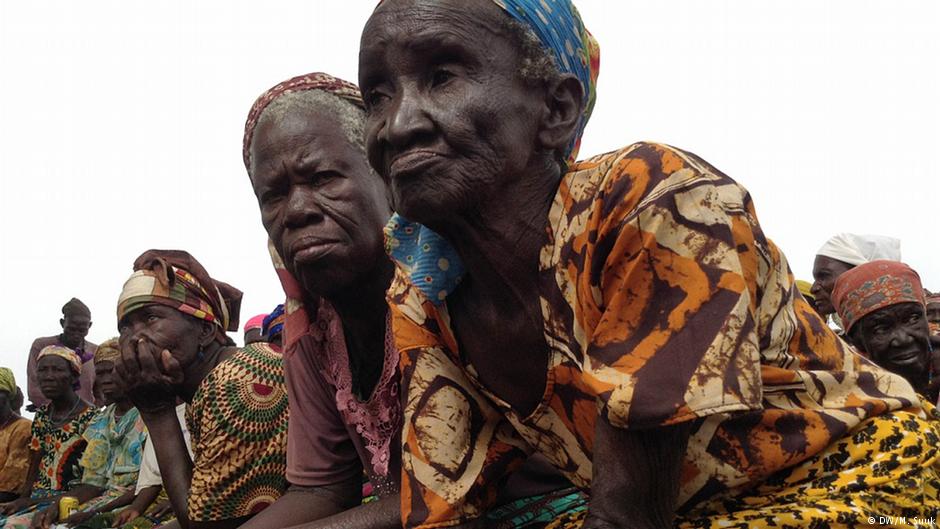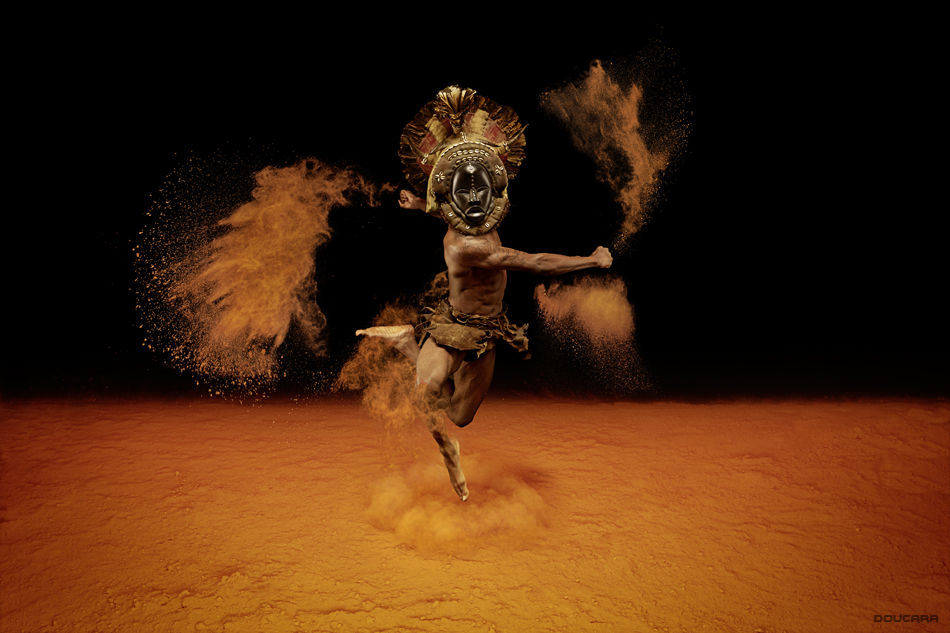Growing up, I heard stories about extraordinary occurrences, that were created with the aid of supernatural powers and defied what was considered normal. These powers were either gifts or curses that were bestowed to a select few people, whom we casually referred to as witches or sorcerers. In Africa witchcraft or the belief of it has existed since people started living in communities. Witchcraft in Africa has been studied more extensively as a topic by many anthropological researchers.
In East Africa, the practice of magic has its origin in indigenous African religion. The practice involved the worship of ancestors and performing of rituals that people then believed would guarantee good fortune. With the introduction of exotic religions of Islam and Christianity, these religious practices were discouraged and later labeled as witchcraft. With colonialism, laws were introduced to criminalize these practices and harsh punishments were inflicted on the people that were suspected of engaging in these practices. However that did not stop people from believing and some from practicing it. These colonial era laws are still in force in many parts today.
Witchcraft today
Today witchcraft or magic is still practiced by some groups of people. The contentious issue surrounding it is whether it is real or just imagined. Skeptics argue that many people are quick to link anything that results from inexplicable events as being caused by supernatural powers, like witchcraft. Believers will try to give examples of events that they believe are the result of witchcraft.
The uses range from curing illnesses, creating good fortune, love, financial success, politics and protection from harm. On the negative side it has been linked to causing ill health, bad luck and misfortune to unsuspected people. It is also used as a form of punishment.
In medicine, herbs, incantations and animal sacrifice are some of the activities that are practiced by traditional healers known as witch doctors. Throughout Africa this is the most common type of use of witchcraft. People have testified of being cured from illnesses that modern medicine has failed to cure through the intervention of witch doctors. However, many people have fallen prey to unscrupulous people who pretend to cure only to take their money and fail to perform anything for the unsuspecting patient.

Love potions and spells are also an important part of witchcraft. The main reason women and men in their twenties and thirties visit witch doctors is to get lucky in love. These situations are typically depicted in many films and other works of literature because they form part of the general practice of people in Africa. In many Nollywood films, the main antagonist usually relies on witchcraft to secure their love interest and in most cases they succeed––at least at first. Witchcraft does not only win you love but it also helps you ward off potential rivals for your love interest.
In sports also as in other parts of human life witchcraft has a role to play. In football it is believed by many in sub-Saharan Africa that it affects the performance of players. In the 2002 African Cup of Nations, a former goalkeeper of Cameroon was caught burying bones under the turf and spraying a potion to cast a spell on the field before a crucial semi final game against Zambia. Many teams are also accompanied by witch doctors when going for competitions. Failure to win has often been attributed to the potency of the witch doctors magic against that of the rival team.
Also in politics the belief of witchcraft is rampant. Political leaders in many African nations are either believed to be practitioners of witchcraft or employ very powerful sorcerers who protect their lives, grant them charisma, and destroy their opponents chances of success. In most cases political competition is seen as a battle of who is better at witchcraft. In 2005 the Malawian President moved out of a 300 room presidential mansion claiming that it was haunted and his political opponents had something to do with it. This belief has stopped many upstanding and prospective leaders from engaging in politics for fear of being bewitched.
Tale or testimony?
In Tanzania, I heard stories of people who were subjected to a lot of weird forms of punishments just for doing something wrong to an elderly person suspected of practicing witchcraft. Healthy people would die under mysterious circumstances, some will be infected with diseases and some would have a cloud of bad luck hanging over their heads. Some stories are funny but some are so bizarre that only someone with very high levels of imaginations could make them up.
One such story was a young man who had a sexual relationship with a woman whose father was rumored to be a powerful witch. She got pregnant and her parents demanded the man to take responsibility over the pregnancy to which he refused and denied even knowing her. The father told him to tell everyone in the neighborhood or anyone else who he thinks might be the father of the unborn child to go and notify the woman’s parents and take responsibility for the pregnancy in one week or he should be ready to suffer the consequences.
A week later the young man started experiencing pregnancy symptoms such as nausea, fatigue, and abdominal pains. He visited a local clinic where he was tested and the results were just as shocking to the nurses as they were to him. He was told he exhibited all signs of a pregnant woman. He went home and told his family and neighbors about his mysterious illness. They all deduced that he must have been bewitched and the first suspect was the pregnant woman’s father.
He later went with his parents to visit her, carrying with him something to take to them as a token, demonstrating how sorry the young man was. The parents accepted their apology but the young man was forced to carry the pregnancy for six more months as punishment until in the later stages of the pregnancy it magically reverted back to the woman for her to give birth.
Other incidents have been reported in Kenya where thieves who steal livestock have started behaving like the animal they stole after the owner visited a witch who cast a spell on them.
Goat thieves start bleating and eating grass, cattle thieves start mooing and eating grass, and chicken thieves also start behaving like chicken. In some cases, people have been glued to items they have stolen and cannot remove them from their hands. Like in one occasion it was reported that a thief who stole a television set was unable to put it down and therefore he could only carry it everywhere he went until he decided to return it back to where he stole it from.
Some skeptics claim these stories are not true and are advertisements to supposed witches who are masquerading as gifted while they, in reality, are not. Others believe that these actions and beliefs whether true or imagined help act as deterrents for delinquent behavior.
The dark side of magic
In many societies the belief of witchcraft has played a major role in underdevelopment. People refuse to take part in activities fearing that someone will cause harm to them or a loved one. During the population census in Tanzania many clerks have expressed that people are unwilling to give correct information fearing that the data collected will be used to bewitch them. Therefore affecting the national planning process which relies on the data collected during the census. Some people also refuse to seek help believing that they have been bewitched and they are therefore beyond help.
Another negative effect of this belief is the killings that have been reported of people suspected of being witches. In most cases in Eastern Africa elderly women are accused falsely of practicing witchcraft and executed in public by angry leaching mobs. In recent years what has come to the world’s attention is the plight of people with albinism who have for years been killed and dismembered, whether against the belief that their body parts contain magical power or, quite the opposite, that they are cursed and bring misfortune. So-called “albino hunters” sell corpses for as much as US$ 75,000. Allegations against children are a novel, yet growing phenomenon, according to UNICEF. Children with unusual behavior, such as aggressive or solitary tendencies, run a risk to get accused of being possessed by evil spirits. Orphans taken in by family members or step children are found to be particularly vulnerable. The children face physical and mental abuse, are threatened to be killed, and often end up on the streets.
Despite its negative effects, witchcraft is still part of many Africans’ culture. Proponents of witchcraft claim that it is colonial stereotypes that have transformed an essential aspect of African identity to be viewed as evil. The belief in witchcraft has also been used in history to unite different groups of people to oppose colonial incursions in Africa. One such movement was the Majimaji Rebellion in Tanzania against German colonial rule which broke out in 1905 until 1907. A witch doctor by the name of Kinjikitile Ngwale raised an army from people of 10 different tribes. He gave them a potion with magic powers which they believed would turn the bullet fired by European guns into water. Therefore, rendering them useless. Unfortunately, the rebellion was defeated but the unity that this belief created still inspires many people today.
Related articles:
Witchcraft Brewery: The Dark History of Beer, Witchcraft and Gender
Kidnapped, Butchered, Offered: Human Sacrifices in the 21st Century
Photo Credits:
File:Live Witches.jpg, by SALTN, CC BY-SA 4.0
Serie MAGIE NOIRE, by supermonkeyfly photos, CC BY-NC 2.0






